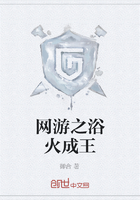NADOU'S PAPA CALLED FROM MIAMI YESTERDAY evening and told her, "I got it, pitit mwen. I got the visa." I was bathing in Loulouze's yard—the lady with the big earrings, who says a young girl should have privacy to wash her chouchoun—and when I came back to the tent, Nadou's face was blank. I thought something terrible had happened. I thought someone had died.
"Nadou, what's wrong? What happened?"
She couldn't look at me. She was looking somewhere over my shoulder, and she said, "He got it. He got it. I'm going. I'm supposed to go to the US consulate tomorrow and pick up all the documents."
It took a minute for me to even move. Then I grabbed her hands in mine and held them tight. "That's great! Finally! That's fantastic news!" My voice was brittle with enthusiasm. I was pretending, for Nadou's sake. I knew she could tell the difference. But there was no point in throwing myself to the ground and screaming, "Don't go, don't go!" Of course she must go. Anybody, given the chance, would go, would leave this broken city.
Nadine shivered. "We'll figure out a way for you to come. I don't know how, but we'll do it, okay?"
"Yeah. I know. We can do it. Nadou, stop looking so sad. Stop it! Be happy instead."
"You promise you'll come?" she asked me.
"Of course. Stop being dumb."
"Tomorrow we'll start figuring it out," Nadine decided. "After I get back from the consulate. We'll start doing research. I'll ask Jimmy. His dad's in Miami. And he's good at computers. He'll know."
"Okay. Agreed. I promise."
"I know, sista."
Nadou spent almost all day waiting in line at the US consulate, so we're only just now going to meet up with Jimmy at the cybercafe, at five P.M. She came home looking exhausted, clutching a fat manila envelope to her chest. DO NOT OPEN UNTIL AT UNITED STATES IMMIGRATION, it says. It is sealed with thick, clear tape. On the front is a grainy black-and-white photograph of an unsmiling, serious Nadou. Underneath is all the information they need about her: her birthdate (July 28, 1994), her place of birth (Port-au-Prince, Haiti), her father's name (Duverlus, Frantz) and status (US Resident), and her mother's name (étienne, Yolette) and status (deceased).
"How did it go?" I ask.
"There were so many people there," says Nadine, her eyes glassy. "Standing in line, all day. All around the block. Under the hot sun, all day." She shakes her head in wonder. "So many people. Most of them weren't approved; they weren't there to pick anything up. They were just … just waiting and hoping."
"Just think, if all those people had real jobs … ," I say. "Just think of where this country might be."
Nadine tears open a bag of drinking water with her teeth and sucks it down. "That is their job. Trying to get out." She tosses the plastic bag into the drainage ditch a few feet from our front door. "Let me call Jimmy and tell him we're on our way."
The cybercafe is packed at this time of day, mostly with high school and university students who have gotten out of school and have come to chat online, send e-mail, or do homework. A young man in a corner is on an international call, speaking English loudly. I can't tell whether he's good at it or not, but he sounds frustrated. In another corner, a staticky TV is playing a Whirlpool commercial with an adorable little light-skinned girl and her handsome light-skinned father and their beautiful kitchen full of shiny new appliances. The world in that commercial isn't meant for people like me, but I can't help humming along to the Whirlpool song.
Jimmy gives me a kiss on the cheek in greeting, then wraps his arm around Nadou's waist and pulls her close to him. Jimmy has always liked Nadine. They SMS all the time, and I always know when she's gotten a message from him, because she has a special ringtone for him—Celine Dion's "Je lui dirai." He wants to be her boyfriend, and she's kissed him a few times, but she decided it would be better to just be friends.
"Let's go see what we can find." Jimmy pulls a chair up to one of the computers. Nadou sits in a chair next to him, and I lean over her shoulder to watch.
"Your chin is pointy," she says.
"Your shoulder is bony."
Jimmy starts typing without even looking at the keyboard. His fingers are slim and elegant. He smells like cologne.
"First you go to yahoo-dot-fr," he explains. "Then type in 'tickets port-au-prince miami.'" He pushes the keyboard toward Nadine, who slowly begins to peck out the words, using two fingers. "You're going to have to get good at computers when you're living in America," he counsels her. "Now click on Search."
The computer burbles electronically, and then a site comes up that lists a bunch of airfares. I'm afraid to look—what if the ticket price is huge, so huge and expensive that I'll never be able to dream of buying one?
"Magda," says Nadine softly. I realize I've actually shut my eyes. "It's not too bad. Look."
They're all between $200 and $250 US for a one-way flight. I exhale. I start calculating it into gourdes … Around 10,000 gourdes. It's more money than I've ever seen. But it's not an unimaginable amount of money. It's not impossible.
"It shouldn't be hard, girls," Jimmy says assuredly. "The hard part will be the paperwork. Tonton Sam doesn't like Haitians coming in."
"Who's Tonton Sam?" I ask, confused. "Does he work at the airport?" I imagine a big fat man checking all the passports and turning Haitians away.
"It means America, Magdalie," explains Jimmy. "Uncle Sam. America doesn't like Haitians."
"Oh." I don't know what to say to that. I feel guilty, and I don't know why. "I knew that already."
"So it's not just buying your ticket. You have to get a visa and everything, like Nadine did."
"I can do it! I'll do it," Nadine declares. "I can get it for her."
Jimmy looks at Nadine as though she is stupid, but he doesn't say anything, because he likes her. All he says is, "I gotta go, little ladies. I have an exam in two days."
"Mèsi, Jimmy," says Nadine. "Thanks. You're so nice to me."
"I'll text you," he tells her. "Tonight."
"Ten thousand gourdes," I say to Nadine as we walk home through the smoky dusk. I repeat, "Ten thousand gourdes." I sing it softly, like a chant. The air smells like burning trash.
"We can do it," she says excitedly. "I'll be working on the visa from Miami, okay? I'll be able to do it, because I'll be a rezidan."
"Wi," I agree.
"And, Magda, you can be working on getting the money for the ticket."
"How? How will I do that?"
Nadine chews her bottom lip. "Like when Tonton élie gets a job, you can ask him for money."
"No, I can't."
"Well … when he gives you money and sends you to the market to buy food, just keep a little of it. Bargain with the machanns as low as they'll go, and then keep a little, and tell Tonton élie that they're selling whatever it is for twenty-five gourdes instead of twenty apiece."
I'm shocked. "You want me to steal from Tonton élie, Nadou?"
Nadine slaps her hands together, fingers to palms, fingers to palms, and shrugs. "We have to do what it takes."
"Yeah."
"Or you could get a job."
"Yeah."
"I promise you, sista, I'm going to do whatever it takes."
And Nadine holds the promise out before me, and possibility shines in her eyes, as if her eyes contain both of our futures, and all I have to do is follow. None of this will be that hard. Nothing is impossible, with patience and faith. Little by little, the bird builds its nest, I remember Manman used to say.















